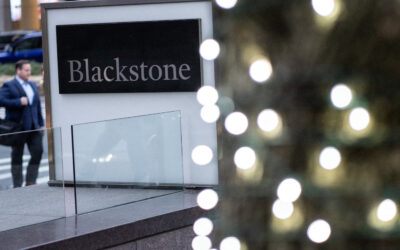If private equity firms cannot clearly show outperformance of the stock market soon, surely even their stoutest defenders among investors will start questioning the hefty fees they pay.
Private equity firms insist they have learned their lesson. After the global financial crisis they were too slow to take advantage of all the cheap assets up for grabs. They are determined not to make the same mistake again. Some observers say they cannot afford to.
It may seem crazy to suggest that the private equity industry is under pressure. After all, firms have been deluged with money in recent years as investors have desperately searched for returns in a world of rock-bottom interest rates.
Yet the industry has signally failed to produce those returns, at least relative to booming stock markets. At some stage that will have to change, or investors will start to look elsewhere. Now may be the industry’s best chance.
For several decades the top private equity firms produced remarkable returns that comfortably justified their remarkable fees. Yet following a series of reports by academics and investors that have examined their performance there is now little argument that, at least since the financial crisis, US funds have failed to beat US public equities. In absolute terms the returns have been healthy. But matching public equities is hardly what investors pay fees of up to 6% for.
A recent report by Harvard economist Josh Lerner and consultants Bain & Co found that US private equity returns have lagged the S&P 500 index over the decade to June 2019, the first time that has happened over any ten-year period.
Now work by Ludovic Phalippou, a professor at Oxford University’s Saïd Business School, suggests that the lacklustre performance dates back further.
For 15 years, Phalippou has been dissecting what he sees as the highly misleading way that the industry presents its returns. One trick is to adopt the most flattering index for comparing relative performance. The standard benchmark for US funds used to be the S&P 500 index but it has increasingly been replaced by the MSCI World Index, which has performed much less well in recent years.
Phalippou points out that most companies in which private equity firms invest fall below the size range of the S&P 500, the MSCI World Index or the FTSE 100. So it would be fairer to compare funds with indices that exclude the largest companies. On that basis he found that US private equity fund returns were similar to US public equities not only in the most recent period, but also between 1996 and 2005 (when big companies underperformed).
The picture in Europe is less clear. The Bain study found that European funds continued to outperform over the last decade. That was relative to the FTSE 100 index, however, which has done less well than smaller company benchmarks. An earlier study by another Oxford professor, Tim Jenkinson, found that just like US firms European funds had lost their edge since 2006, though this was based on a small sample.
Even if the average returns have been disappointing the leading private equity firms have been able to produce figures showing that they have turned in consistently strong returns for decades. Yet Phalippou claims this is based on the use of internal rates of return, an “absurd” measure that is easily gamed and flatters the industry leaders which all had spectacular returns in the early years. His analysis suggests that their recent returns have been close to the average and to the returns from US public equities.
Whatever the truth of this the industry as a whole clearly needs to raise its game. And the crisis presents just the sort of opportunity firms say they have been waiting for. Even though the industry did not make the most of the bargains on offer after the global financial crisis, funds from the 2009 vintage produced bumper returns.
But firms also face daunting challenges. Much of the immediate focus has naturally been on shoring up existing portfolio companies, many of which have seen business evaporate. Some firms have taken advantage of government-backed loan schemes, but others are wary of the strings attached and there is continued wrangling about whether some companies with very weak balance sheets should be disqualified by EU rules.
Some in the industry are rightly nervous about a possible backlash against high corporate debt, which is seen as making businesses less resilient in the crisis and more dependent on taxpayer bailouts. This could result in restrictions on leverage and further limits to the tax deductibility of interest which could hit future returns.
Although there will be plenty of distressed assets, finance will be less generous and some executives fear competition will drive prices too high given the uncertainties about the pace of recovery and changing consumer behaviour.
All of which means the crisis will be a huge test of the real value private equity firms add. If they can’t begin outperforming public equities again soon even their doziest investors will start questioning the model — and those remarkable fees.
Source: FNLondon
Can’t stop reading? Read more
Ambienta strengthens sustainable refrigeration platform with Freddo Co. acquisition
Ambienta strengthens sustainable refrigeration platform with Freddo Co. acquisition Ambienta has...
Blackstone deploys $1bn in private credit to replace Signant Health’s bank loans
Blackstone deploys $1bn in private credit to replace Signant Health’s bank loans Blackstone has...
EU launches €5bn fund to back European scale-ups in AI, quantum, and semiconductors
EU launches €5bn fund to back European scale-ups in AI, quantum, and semiconductors The European...




